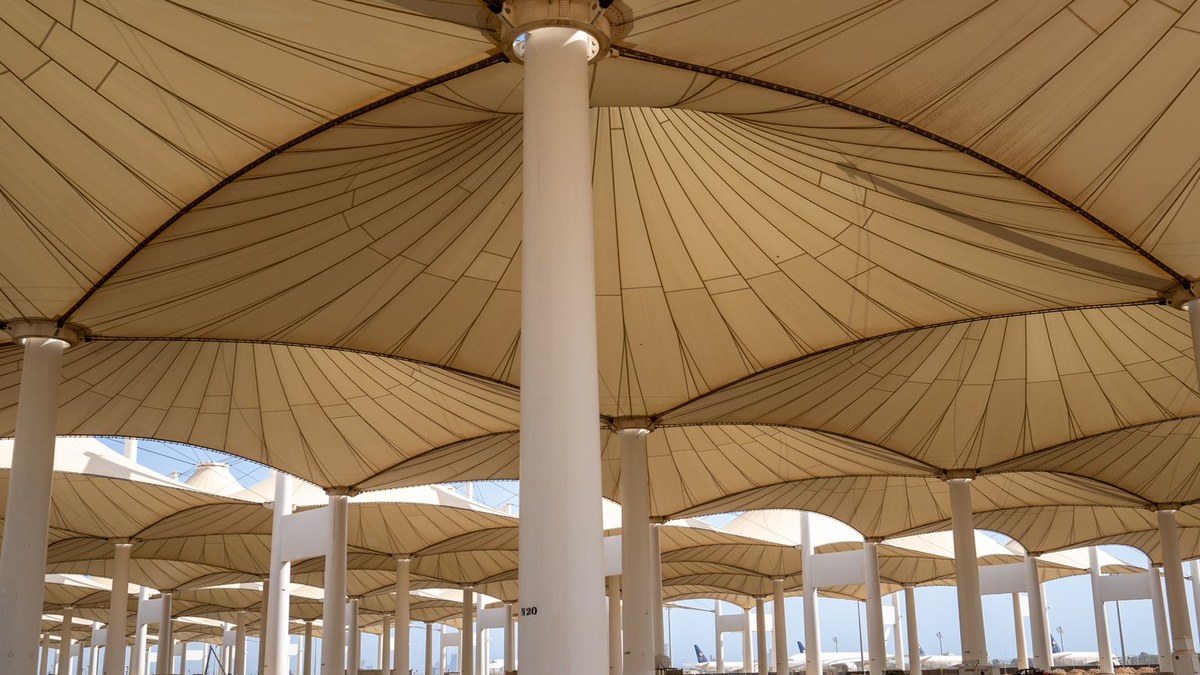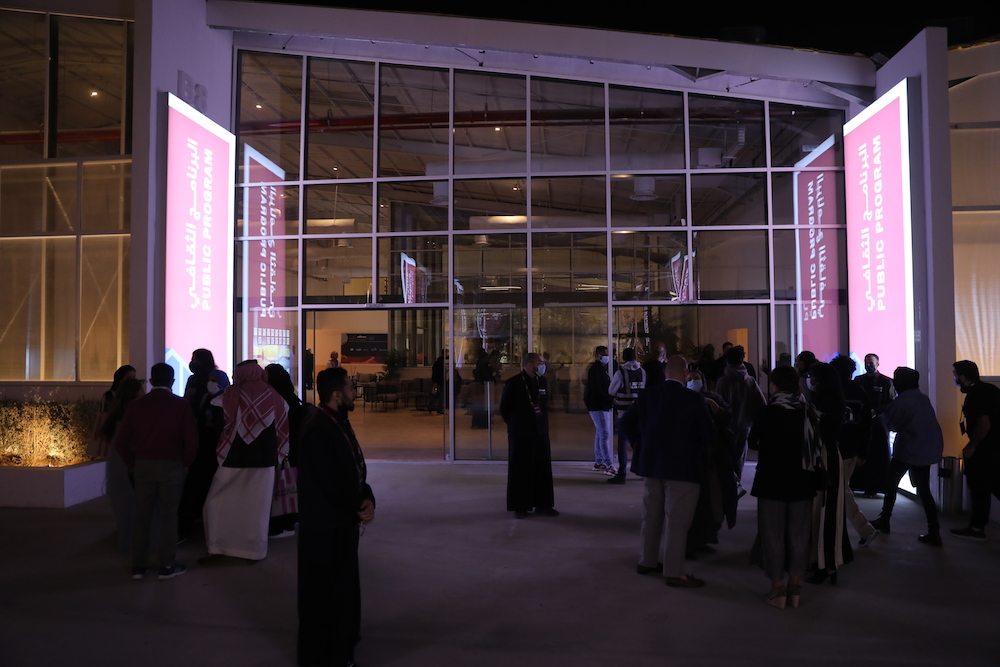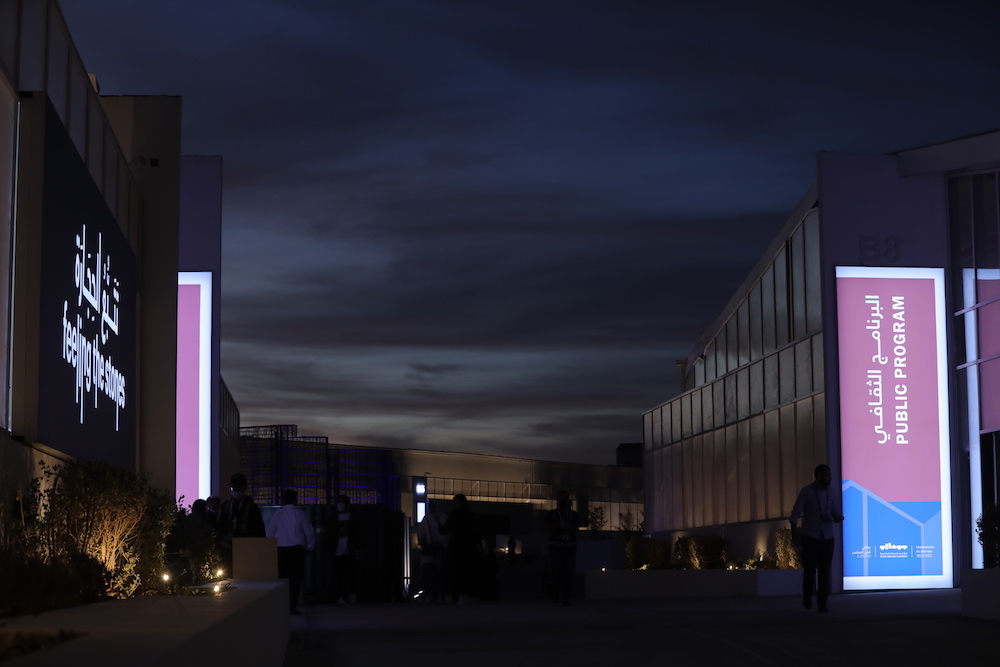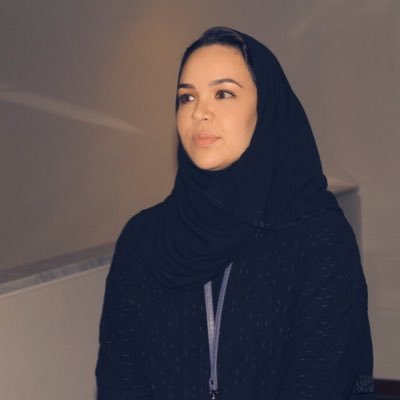JEDDAH: Islamic art has rarely been the subject of a dedicated international exhibition, with the notable exception of the Islamic Art Festival in London in 1976. Now, four decades on, the inaugural Islamic Art Biennale is coming to Jeddah with a juxtaposition of traditional and contemporary works.
To be held at the iconic Western Hajj Terminal of King Abdulaziz International Airport from Jan. 23 to April 23, the aim of the biennale is to compare and contrast contemporary works alongside a collection of historical artifacts, many of them on loan from museums, with the scenography designed by Oma, an international firm specializing in architecture and urbanism.
Led by a team of renowned curators, including Sumayya Vally, Dr. Julian Raby, Dr. Saad Al-Rashid and Dr. Omniya Abdel Barr, the biennale’s theme is “Awwal Bait” — or “the first house” in Arabic.
“One of our points of strength is the location,” Abdel Barr told Arab News. “It is already a monumental site, an impressive place, and is literally the first place encountered by visitors coming for pilgrimage and sometimes for homage during Ramadan.
“In this way, it is also very much linked with our first theme for the biennale, which is ‘Awwal Bait’ or ‘the first house.’”

Suspended from tapering steel pylons, the fiberglass fabric tents of Jeddah’s iconic Hajj terminal won the 1983 Aga Khan Award for Architecture two years after opening in 1981. (Supplied)
The terminal, which has served as the world’s gateway to the holy cities of Makkah and Madinah since it opened in 1981, is only used during the six weeks of Hajj. Built by Skidmore Owings and Merrill, it won the 1983 Aga Khan Award for Architecture.
The original design was inspired by the traditional tents used by pilgrims over many centuries during desert journeys to the holy cities. Its luminous translucent roof, made of a Teflon-coated fiberglass membrane, allows for natural lighting and ventilation, making for a poignant and striking exhibition space.
The theme of Awwal Bait will be expressed through two complementary sections: Qiblah, or “sacred direction,” showcasing artworks emphasizing the spirituality of Islam, and Hijrah, or “migration,” featuring large outdoor installations under the Hajj Terminal canopy.
The exhibition will be a multidisciplinary representation of what it means to be Muslim, with many pieces reflecting the central importance of the Kaaba, the most sacred pilgrimage site in Islam at the center of the faith’s most important mosque, the Masjid Al-Haram in Makkah.
The decision was made to stage the exhibition in Jeddah, instead of the Saudi capital Riyadh, because of the Red Sea port city’s strong connection with the Hajj as a crucial transit point for visitors.

The Diriyah Biennale Foundation was launched by the Ministry of Culture in 2020. (Supplied)
Indeed, Jeddah has long been a principal gateway for pilgrims, past and present, on their way to Makkah and Madinah, making it a highly symbolic location for the exhibition.
“At the same time, it reflects on the construction of ‘home’ through our spiritual and cultural rituals in Islam — acts which both unite us and celebrate our diversity and cultural hybridity,” curator Vally told SPA.
The exhibition is one of two biennales organized by the Diriyah Biennale Foundation, established in 2020 by the Saudi Ministry of Culture. The other is the Contemporary Art Biennale, launched in December 2021 and held in the JAX district of Diriyah.
January’s event will include contemporary artists from Saudi Arabia and throughout the Middle East. Among them is Farah Behbehani, a Kuwaiti artist and designer, who created the “Path of Light” for the event.
The kinetic piece, which is hand-embroidered with metallic and silk threads as well as rope and glass beads on linen, celebrates the birth of Prophet Muhammad and focuses on the concept of light, which is central to the Islamic faith.
“For this work, I selected a verse by Ahmed Shawi, the 19th-century Egyptian writer known as the Prince of Poets, that he wrote in tribute to Prophet Muhammad,” Behbehani told Arab News.

The exhibition is one of two biennales organized by the Diriyah Biennale Foundation, the other is the Contemporary Art Biennale, launched in December 2021 and held in the JAX district of Diriyah. (Supplied)
“The verse talks about how the good tidings of the prophet’s birth created a path of light out of the darkness, illuminating the world from East to West.”
Behbehani fitted the poetic verse within three panels designed according to Islamic geometric patterns, which are inspired by the domes found on mosques.
“The entire work has been hand-embroidered and references the brick-tile work that was created and designed in Islamic architecture in mosques and other buildings,” she said.
Cairo-based Egyptian artist, Huda Lutfi, has created “Inside the Black Enclosure,” an installation that takes its inspiration from the act performed by millions of Muslim pilgrims on the first and last days of pilgrimage.
The creation of a new embellished covering for the Kaaba is an act of veneration that dates to the early days of the faith. Through her work, Lutfi shows how, as early as the Abbasid period, black became the preferred color for the covering.
Produced with great care and expense, the woven adornment, known as the kiswa, is a paragon of Arabian craftsmanship.

Farida Al-Husseini, Director, Islamic Arts Biennale. (Supplied)
In Lutfi’s work, viewers are invited to walk into the inner space of a dark cubic room, illuminated by black fluorescent lighting. The kiswa, which is meant to protect and adorn the Kaaba’s exterior while displaying the wealth and authority of its patrons, is concealed within the enclosed structure, where it serves a contemplative purpose.
Once inside the area of enclosed darkness, all that can be seen across the black walls is a shimmering white panel on which black inscriptions can be read. The embroidered calligraphy encircling the room is a Qur’anic verse, which reads: “To Allah belongs East and West, for wherever you turn, there is the face of Allah.”
Ultimately, the biennale’s aim is to celebrate and share the meaning of Islam through the art of the past and the present in an attempt to solidify continuity through artistic discourse, combining both the heritage of Islam and its contemporary appropriation.
“With the inauguration of the Islamic Arts Biennale in Jeddah we look forward to the future of Islamic arts, while also reflecting on its rich and diverse past,” Farida Al-Husseini, director of the Islamic Arts Biennale, told SPA.
“By bridging craftsmanship and academia with continuing practices of artistry and creativity, we hope that this edition, and future editions to come, will create space for new perspectives to be voiced and unexpected connections to inspire and generate meaning.”





























